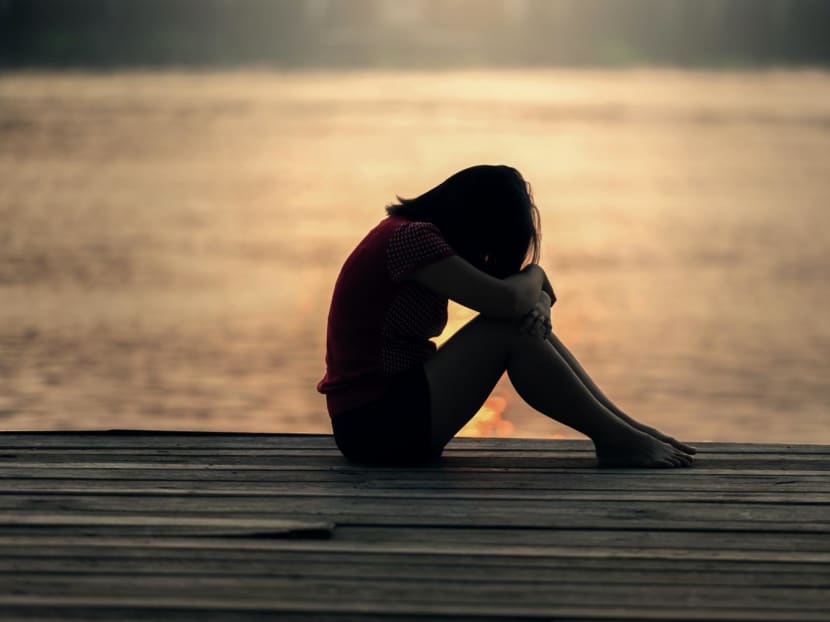Commentary: Hello, there’s no shame in being lonely
There is a sense of deep shame attached to being lonely. Nobody wants to be thought of as unpopular or unlikeable.

Research suggests loneliness rivals smoking and excessive drinking in terms of damaging health and shortening lives.
There is a sense of deep shame attached to being lonely. Nobody wants to be thought of as unpopular or unlikeable.
One consequence of that stigma, according to US surgeon general Vivek Murthy, is a silent epidemic of loneliness.
Murthy, now on his second stint as the nation’s physician, recently admitted to feeling profoundly lonely after being dropped from the job the first time around.
Research suggests loneliness rivals smoking and excessive drinking in terms of damaging health and shortening lives. This is not a trivial, touchy-feely issue: an ageing population may also mean it is a growing epidemic.
Professor Andrea Wigfield, director of the Centre for Loneliness Studies at the UK’s Sheffield Hallam University, points out that loneliness is different from social isolation. The latter is an objective measure of whether a person lives alone, has friends and family, and belongs to social groups.
Loneliness, on the other hand, is the self-reported, subjective feeling that one’s social relationships somehow fall short, in quantity or intimacy or both.
It generally follows a U-shaped curve with age: high among adolescents and young adults (the group who felt most lonely during Covid-19 lockdowns), dipping in middle age and then rising again. It can be triggered by significant life events such as going to university, bereavement, retirement, moving home or becoming a carer.
Murthy claims that loneliness is equivalent to smoking 15 cigarettes a day. The eye-catching analogy can be traced back to a 2010 meta-analysis of 148 separate studies encompassing more than 300,000 people.
The study concluded that people with stronger social relationships showed a 50 per cent increased likelihood of survival compared to those with weaker relationships, irrespective of age, sex, underlying health, length of follow-up period and cause of death.
The same research identified loneliness as a stronger risk factor for death than physical inactivity and obesity — one comparable to smoking and excessive drinking. The condition has also been linked to a raised risk of cardiovascular disease, type 2 diabetes, rheumatoid arthritis, autoimmune disorders and cancer.
The English Longitudinal Study of Ageing points in the same unwelcome direction.
The long-term Elsa study — which began in 2002 and quizzes thousands of over-50s at two-year intervals on their health, weight, income and social activities — found that loneliness or social isolation was associated with conditions including depression, dementia, heart attacks, long-term lung disease and frailty.
Could correlation be causation? One theory is that our evolution as a social species has bequeathed a fundamental craving for human company — a hangover akin to our evolved preference for sweet, fatty foods.
Left unsated, the craving causes psychological stress, which induces physiological effects such as raised levels of cortisol, the stress hormone.
As Wigfield explained, loneliness seems to trigger the “flight or fight” response, which causes inflammation and increased white blood cell production (a response to inflammation).
Andrew Steptoe, the University College London professor who leads Elsa, stressed in an email that “the other important pathway is through behaviour, not biology. Socially isolated and lonely people often follow less healthy lifestyles in terms of smoking, physical inactivity, and dietary choice.” They may delay seeking medical help when they fall ill.
It is clear that countering loneliness is critical to improving the nation’s health — and ideally before temporary setbacks harden into chronic isolation.
“Some argue that the longer you experience loneliness, the more difficult it is to break out of [it],” Wigfield says. “People who are lonely can start to perceive themselves, and others’ views of themselves, more negatively and misinterpret signals from others.”
The UK-based organisation Campaign to End Loneliness recommends initial steps such as saying hello to a neighbour.
Local hobby or interest groups, ranging from art to sport, provide like-minded interaction. Volunteering can particularly appeal to men who might shy away from receiving support themselves but are more open to helping others.
Wigfield’s other tips, including for young people prone to judging themselves harshly against glossy social media feeds, include meeting face-to-face and putting devices away.
The campaign group estimates that the number of over-50s experiencing loneliness in the UK will reach two million by 2026.
We cannot end loneliness but, simply by saying hello, we can all help to banish the shame.
ABOUT THE AUTHOR:
Anjana Ahuja is a contributing writer for the Financial Times on science, offering weekly opinions on significant developments in global science, health and technology.









